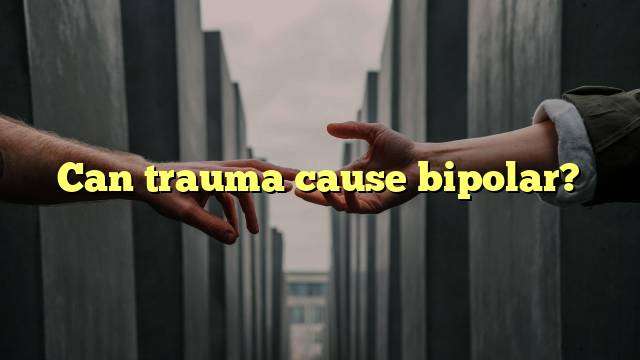Can Trauma Cause Bipolar?
Bipolar disorder is a mental health condition that affects millions of people around the world. It is characterized by extreme shifts in mood, energy, and activity levels. While the exact cause of bipolar disorder is not known, some experts believe that it can be triggered by childhood trauma.
What is Childhood Trauma?
Childhood trauma is any traumatic experience that occurs during early developmental stages in life. It can include physical, emotional, and psychological distress and can occur as a result of abuse, neglect, illness, or other stressful events. These experiences can have a profound effect on the developing brain and can lead to long-term emotional and psychological problems.
How Does Trauma Lead to Bipolar Disorder?
Experts believe that childhood trauma can lead to the development of bipolar disorder by affecting the way the brain processes and regulates emotions. When a child experiences trauma, their brains are flooded with stress hormones that can interfere with their emotional responses. Over time, this can lead to a disruption in the normal functioning of the brain, resulting in extreme and unpredictable mood swings.
What are the Symptoms of Bipolar Disorder?
The symptoms of bipolar disorder can vary from person to person, but typically include periods of extreme elation and depression. During the manic phase, people may feel excessively happy and energetic, have grandiose thoughts, and engage in reckless behavior. During the depressive phase, people may feel hopeless, tired, and experience a loss of interest in activities they once enjoyed.
How is Bipolar Disorder Treated?
Bipolar disorder is typically treated with a combination of medication and psychotherapy. Medications such as mood stabilizers, antipsychotics, and antidepressants can help to manage the symptoms of the disorder. Psychotherapy can help people understand and manage the triggers of their mood swings and develop coping strategies. Additionally, lifestyle changes such as getting regular exercise, eating a healthy diet, and getting enough sleep can help to reduce the intensity of symptoms.
Conclusion
The exact cause of bipolar disorder is not known, but some experts believe that childhood trauma can be a trigger for the development of the disorder. It is important to seek professional help if you or someone you know is experiencing symptoms of bipolar disorder. With the right treatment, it is possible to manage the symptoms of the disorder and lead a healthy and fulfilling life.
